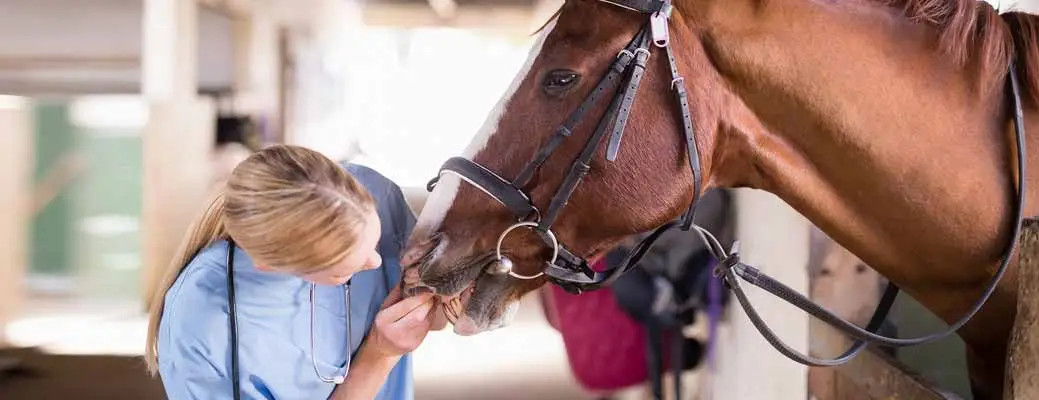Just about every farmer or rancher knows that livestock health is critical to their success. While most livestock owners can manage small medical issues on their own, it’s crucial to establish a relationship with a large animal vet in your area in case of an emergency or serious health issues. A skilled farm veterinarian can also help ensure that your animals receive proper preventative care to avoid larger health issues down the road. Ultimately, when your animals are healthy, your job is easier, and your bottom line is better protected. Here’s how to find a vet that’s right for your herds and flocks, and whether you should consider livestock insurance to protect your investment.
How to Find a Large Animal Vet
According to the Farm Journal Foundation, there is a shortfall of food animal veterinarians throughout the country, especially in rural areas, making it more important than ever to start your search for a vet. Establishing a relationship now will ensure that you have someone to call on in case of emergency in the future. Use the questions below to guide your search for a farm veterinarian.
What Animals Do They Focus On?
Most large animal vets have an animal specialty, from beef cattle and dairy cows to equine and hogs. Finding veterinary care that specializes in your livestock ensures that your animals get the best care possible.Will They Come to You?
This is one of the most important things to look for in a vet because when one or more of your livestock is down, it’s critical that an emergency veterinarian can visit the farm to diagnose and treat. This will save you time and can prevent the spread of disease. Plus, because not every health issue happens between 9 a.m. and 5 p.m., it’s beneficial to find a livestock vet that will be on-call after hours. Can They Deal with Reproductive Health?
Though many farmers can assist their livestock with birth, if a calf is coming breach, it can be helpful and reassuring to have a farm animal veterinarian on hand to assist with the birth and aftercare.Are They Trained to Perform Surgery on Large Animals?
Licensed vets are trained in routine procedures and surgeries. Are you dealing with something more specific? Ask about surgical limitations before undergoing any procedures.Can Vet Assist with an Ongoing Problem?
If one of your animals develops an ongoing issue, will the vet be able to develop a long-term treatment plan?How Do They Prevent Disease?
Each farmer or rancher has their own philosophy on medication, so it is helpful to find a vet that understands your approach to herd health.Are They Licensed and Certified in Large Animal Medicine?
Though many technicians are very knowledgeable, having a licensed and experienced veterinarian can be invaluable.
Do You Need Livestock Insurance?
Your animals are important investments, and even the best-run operations can’t prevent the unexpected. Accidents, illness and severe weather are unpredictable and can happen to any farm or ranch. Livestock markets change fast, and feed costs can be unpredictable, exposing your herd to potential revenue loss. With the right livestock insurance coverage in place, you can rest assured that your business will be protected. As a company founded by farmers, we know how to protect commercial ag businesses, family farms, small farms and more, which is why we offer various kinds of livestock insurance:
- Livestock Gross Margin is a type of livestock insurance that can help protect your operation against potential revenue loss caused by declining prices and increasing feed costs. It provides insurance coverage against the loss of gross margin for cattle, swine and dairy cattle.
- Livestock Risk Protection is another livestock insurance option that can help safeguard your operation against declining cattle, swine and lamb market prices. It offers a variety of coverage levels and periods of insurance to correspond with general feeding, production and marketing practices.
- Dairy Revenue Protection can help protect against unexpected declines in quarterly revenue from milk sales because of a decline in milk prices, milk production or a combination of both. Dairy producers can choose from one of two pricing options, which allows you to accurately reflect your own farm-level risk.
- Livestock Freezing or Smothering Coverage covers loss to livestock from freezing or smothering in blizzards or snowstorms.
Plan Ahead to Protect Your Livestock
Much like choosing the right large animal veterinarian is crucial to the health and success of your operation, finding the right insurance coverage is imperative to protecting your investment. Safeguard your success with Farm and Ranch Insurance. Your local Farm Bureau agent can work with you to help ensure you have the best coverage for your operation.

